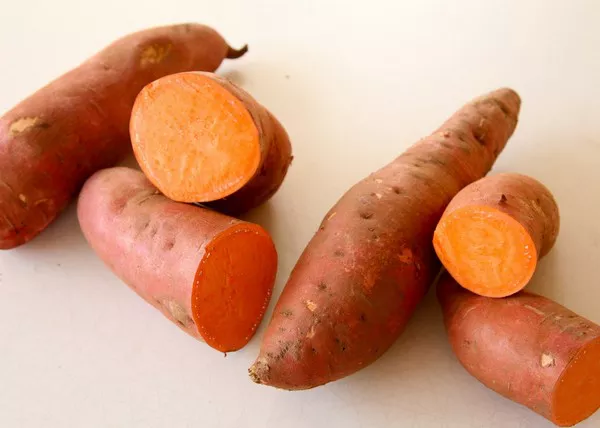Sweet potatoes have long been a staple in various cuisines, celebrated for their rich flavor, versatility, and nutritional value. However, there has been some debate regarding their impact on blood sugar levels. Some individuals believe that sweet potatoes can cause a rapid rise in blood sugar due to their natural sweetness. In this article, we will explore the scientific evidence and shed light on whether sweet potatoes are indeed responsible for raising blood sugar levels.
Understanding Glycemic Index
To comprehend the effect of sweet potatoes on blood sugar, it is crucial to familiarize ourselves with the concept of the glycemic index (GI). The GI is a scale that ranks carbohydrates based on how quickly they raise blood sugar levels. Foods with a high GI, such as refined sugar and white bread, are rapidly digested and absorbed, leading to a spike in blood glucose. On the other hand, low-GI foods release glucose gradually, providing a more sustained energy source.
The Sweet Potato’s GI Profile
Contrary to popular belief, sweet potatoes have a relatively low GI compared to other carbohydrate-rich foods. The average GI of sweet potatoes ranges from 44 to 94, depending on the variety and cooking method. Boiled or baked sweet potatoes tend to have a lower GI than fried or processed ones. The presence of dietary fiber, particularly soluble fiber, slows down digestion and the absorption of glucose, preventing sudden spikes in blood sugar levels.
Rich in Fiber and Other Nutrients
Sweet potatoes offer numerous health benefits beyond their impact on blood sugar. They are an excellent source of dietary fiber, which aids in maintaining healthy digestion, managing weight, and reducing the risk of chronic diseases. Additionally, sweet potatoes are rich in essential vitamins (A, C, and B vitamins) and minerals (potassium and magnesium), contributing to overall well-being.
The Role of Cooking Methods
The way sweet potatoes are prepared can significantly affect their glycemic response. Boiling or baking sweet potatoes with the skin intact helps preserve their natural fiber content and reduces the rate of carbohydrate digestion. On the other hand, deep-frying or excessively processing sweet potatoes can break down their fiber structure, leading to a higher GI. It is important to opt for healthier cooking methods to maximize the benefits of sweet potatoes while minimizing their impact on blood sugar levels.
Health Benefits for Diabetic Individuals
Contrary to popular misconceptions, sweet potatoes can be incorporated into a diabetic individual’s meal plan. Their low-to-moderate GI, combined with high fiber content, makes them a suitable choice for managing blood glucose levels. The fiber in sweet potatoes promotes satiety, which can aid in weight management—an essential aspect of diabetes control. Furthermore, the abundant antioxidants and anti-inflammatory compounds in sweet potatoes may have additional benefits in preventing complications associated with diabetes.
Portion Control and Overall Diet
While sweet potatoes can be part of a healthy diet, it is crucial to consider portion sizes and overall dietary composition. Consuming excessive amounts of any food, including sweet potatoes, can lead to an increase in blood sugar levels. Balancing the intake of carbohydrates, proteins, and fats from various sources is key to maintaining stable blood glucose levels. Individuals with diabetes should work closely with healthcare professionals to determine appropriate serving sizes and incorporate sweet potatoes into a well-rounded meal plan.
Conclusion
In conclusion, the belief that sweet potatoes inherently raise blood sugar levels is not entirely accurate. Their moderate glycemic index, coupled with their high fiber content, makes them a valuable inclusion in a healthy diet, even for individuals with diabetes. The key lies in choosing healthier cooking methods and practicing portion control. As with any dietary consideration, it is advisable to consult a healthcare professional for personalized guidance based on individual health needs. So go ahead and savor the deliciousness of sweet potatoes without worrying about unwarranted blood sugar spikes.

